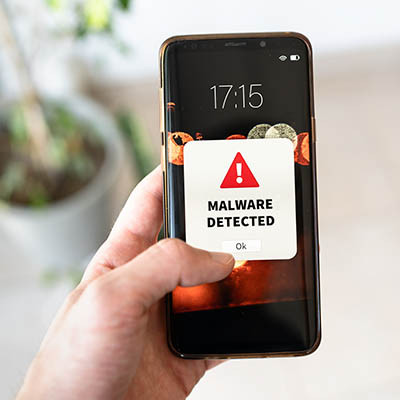- You are here:
-
Blog

-
Fuse Admin

- Yes, Even Apps from Official App Stores Can Be Malicious
Fuse Networks Blog
Yes, Even Apps from Official App Stores Can Be Malicious
McAfee recently released a list of 15 applications the company identified as “predatory loan apps” available for download from the Google Play Store. While steps have been taken to remove them from the platform, we can now discuss how mobile applications can be weaponized if a user is not careful.
Let’s start by discussing the current issue of SpyLoan apps.
How Can Malicious Apps Sneak Onto the Play Store?
SpyLoan apps—much like many shopping applications and websites around this time of year—aren’t overtly malicious in the same way that other app-based threats are. These apps commonly work as malware, taking up storage space and exfiltrating data.
SpyLoan apps operate more insidiously. Instead of installing malicious software and infecting the device, these apps operate as phishing attacks.
These apps work as financial applications, offering highly accessible loans that result in debt and invasions of a user’s privacy. These behaviors are also malicious, but SpyLoan apps can slip past the app store’s checks using social engineering instead of coded threats. As a result, they appear on Google Play and take advantage of the platform’s inherent trust. This trend has been observed (and has grown) since 2023.
This Makes It Crucial to Only Install Trusted Apps
It just goes to show that threats can even slip past the protections that Google has defending its platforms.
This makes it critical to be extremely selective regarding the applications you install, only using trusted sources and installing well-known and reputable software titles—specifically, the legitimate versions.
Warning Signs of Malware on Mobile Devices
There are a few indications to keep an eye out for that your device may be infected.
On the Device Itself:
- Slower operation
- Virus alerts
- Missing storage space
- Inoperable antivirus software
- An inoperable device
In the Device’s Browser:
- Invasive pop-up ads and tabs
- Your browser redirects to other pages or ads
- Your homepage or default search change without your permission
- Virus alerts
- Unwanted installs
Mobile Apps Can Be Used Offensively in Many Ways
Historically, attackers have used mobile applications in various ways to deliver attacks to mobile devices. From putting up apps and pushing malicious code in an update to phishing, as we see here, you must exercise some judgment before installing any application.
About the author
Fuse Networks has been serving the Tukwila area since 2009, providing IT Support such as technical helpdesk support, computer support, and consulting to small and medium-sized businesses.
Newsletter Sign Up
Mobile? Grab this Article!
Tag Cloud

Comments